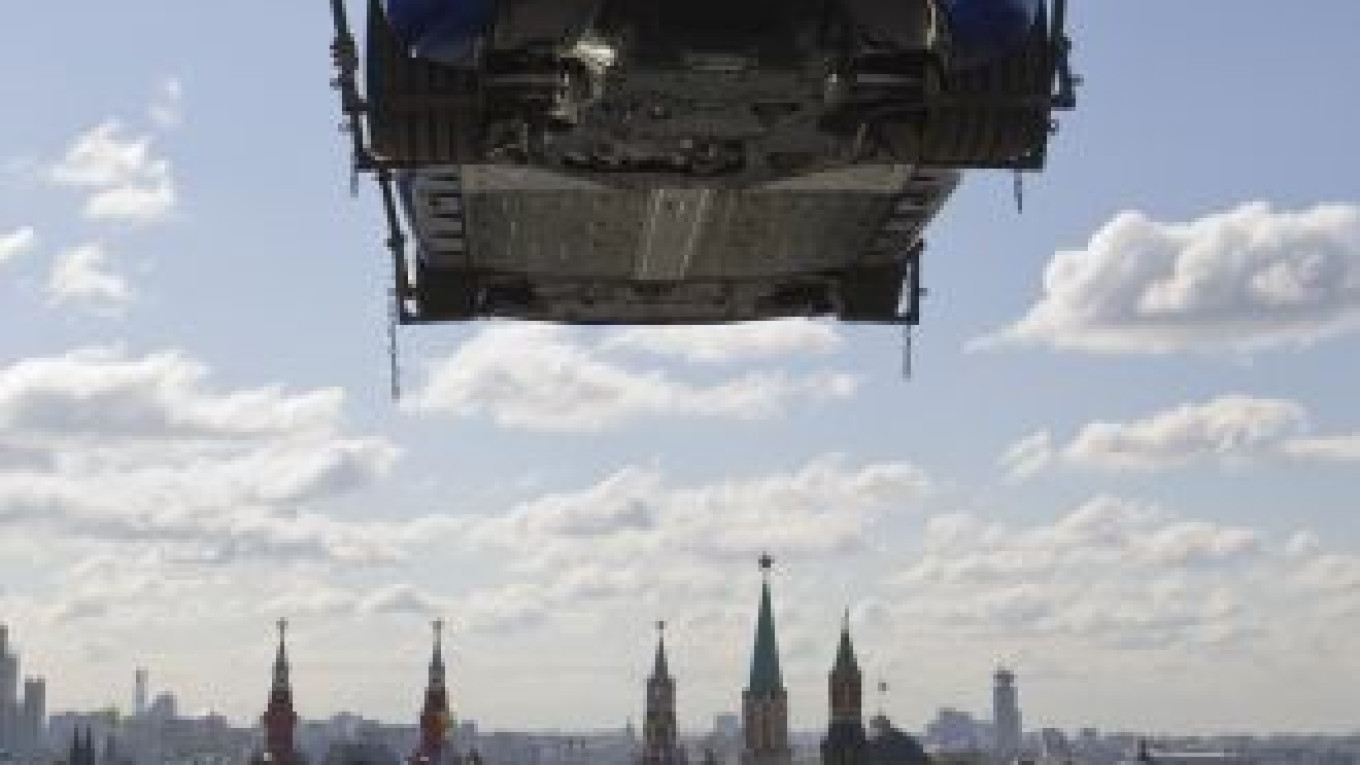Higher duties on imported cars that were set to expire next Monday will now be in place until at least 2012 as part of Russia's customs union with Belarus and Kazakhstan, leaving drivers to pay a major premium for foreign autos.
The increased duties on foreign-made cars are now considered permanent because the customs union's single import tariff has taken effect, a source in the Economic Development Ministry and an official in the government sub-commission on protectionist measures told Vedomosti.
The government temporarily raised import duties on foreign cars effective Jan. 1, 2009, to help the domestic auto industry survive the economic crisis. For new cars, the rates rose to 30 percent of their value, from 25 percent, but not less than 1.2 euros to 2.8 euros per cubic centimeter of engine capacity.
For cars three to five years old, the rate rose to 35 percent, from 25 percent, but not less than 1.2 to 2.8 euros per cubic centimeter of engine capacity. For cars older than five years, the duty is 2.5 euros to 5.8 euros per cubic centimeter.
Under a government order that took effect Oct. 12, the rates were prolonged for another nine months, meaning that they were to expire Monday. But no work to extend or cancel the tariffs is under way, the Economic Development Ministry official said.
Under the customs union's common tariff — which took effect in Russia, Kazakhstan and Belarus on Jan. 1 — the time period for duties on cars imported by legal entities is not specified, so they are automatically considered permanent, the member of the protectionist measures sub-commission said.
Keeping the duties at a prohibitive level for as long as possible was the Industry and Trade Ministry's idea, and the measure was included in its strategy for developing the Russian auto industry, the source said.
"We're operating under the assumption that the current tariff levels, including on new foreign cars, will be in place until 2015," Deputy Industry and Trade Minister Andrei Dementyev told Vedomosti.
Removing the barriers earlier could harm efforts to develop domestic production, he said, adding: "We can't let that happen anytime soon."
First Deputy Prime Minister Igor Shuvalov said in late May that duties on new cars imported into the customs union could be reduced in 2012, though they will remain unchanged for used cars.
The import barriers have been effective so far, so it is no surprise that they were left in place, said Ivan Bonchev, the Russian director of auto policy for Ernst & Young. Before the crisis, the number of domestic and foreign cars being sold were roughly even, whereas now up to 70 percent of sales are of Russian-made cars.
According to data from the Economic Development Ministry, which monitors the effects of protectionist measures, the number of imported cars that were up to five years old fell by 96 percent since the duties were introduced, bringing their market share in the first quarter of 2010 to just 2.4 percent.
Until July 1, 2011, individuals who import cars into Kazakhstan and Belarus will pay a duty that is 83 to 88 percent lower than the one for Russia. For example, importing a 2003 Audi A6 with a three-liter engine into Belarus would cost 1,800 euros ($2,300), compared to 12,000 euros in Russia.
But under the customs union agreement, a driver crossing the border into Russia in the imported car would have to pay the difference.
Keeping the high tariffs will force carmakers to think more about the possibility of producing and assembling cars in Russia, Yelena Solopova, the deputy head of Audi Russia, said through the company's press service. "As a brand importing cars, we're not enthusiastic about this topic," she said.
For Renault, however, it is a positive signal since the majority of the cars that it sells in Russia are produced locally, spokeswoman Oksana Nazarova said. Additionally, the company is a co-owner of AvtoVAZ, and the protective measures justify the cash investments now being made into Russia's largest carmaker, she said.
"The majority of our cars are produced in Kaluga, so the increase in import duties didn't result in higher costs for us," said Yulia Raulina, a spokeswoman for Volkswagen in Russia. The company believes that the barriers will hurt the economy and business in the long run, she said, but investors who brought production to Russia should have advantages.
AvtoVAZ spokesman Igor Burenkov said he thought keeping the high duties was related to the state's program to restructure the auto industry, which will require at least five years. The market needs to be protected for a while, but the duties could be reconsidered earlier than the government is forecasting, said Yelena Matveyeva, deputy chief of GAZ.
The main auto importers in Russia now are either premium-class brands or niche companies such as Subaru, said Dmitry Gulin, president of the Russian Automobile Dealers association and a director at the company Avtomir.
A Message from The Moscow Times:
Dear readers,
We are facing unprecedented challenges. Russia's Prosecutor General's Office has designated The Moscow Times as an "undesirable" organization, criminalizing our work and putting our staff at risk of prosecution. This follows our earlier unjust labeling as a "foreign agent."
These actions are direct attempts to silence independent journalism in Russia. The authorities claim our work "discredits the decisions of the Russian leadership." We see things differently: we strive to provide accurate, unbiased reporting on Russia.
We, the journalists of The Moscow Times, refuse to be silenced. But to continue our work, we need your help.
Your support, no matter how small, makes a world of difference. If you can, please support us monthly starting from just $2. It's quick to set up, and every contribution makes a significant impact.
By supporting The Moscow Times, you're defending open, independent journalism in the face of repression. Thank you for standing with us.
Remind me later.


